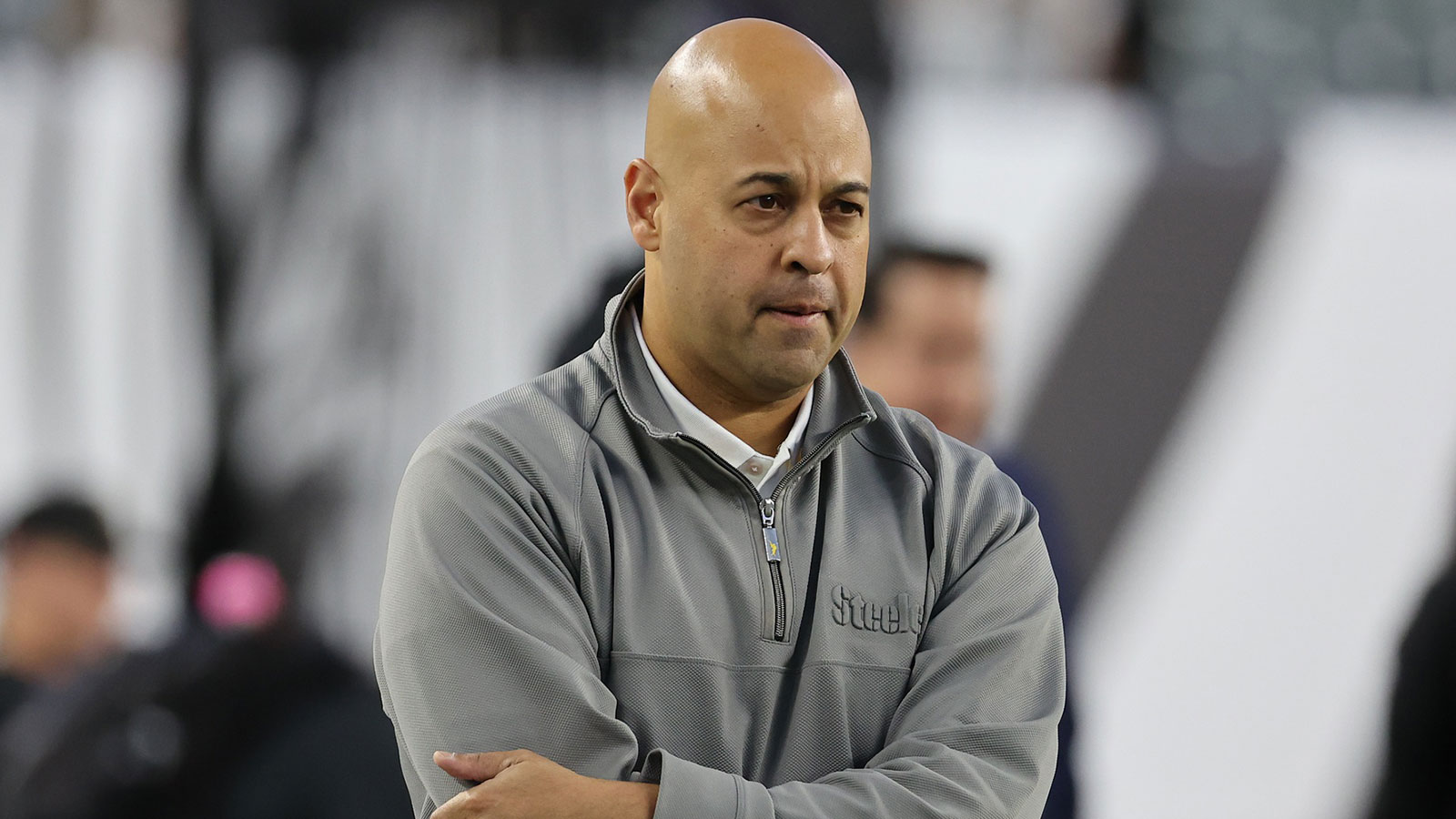In the ever-evolving landscape of the NFL, where the search for a franchise quarterback can define a team's fortunes for years, the Pittsburgh Steelers find themselves once again at a significant crossroads. The suggestion by former NFL General Manager Mike Tannenbaum that the Steelers should prioritize acquiring Justin Fields over Kirk Cousins (or any other veteran quarterbacks who have entered the Steelers rumor mill) has ignited a conversation about the future direction of one of the league's most storied franchises. With the NFL Combine just around the corner and the draft in April, the timing of such discussions couldn't be more pertinent as the Chicago Bears hold the number one overall pick.
If Kirk Cousins is an option and Justin Fields is an option, which way are you going if you’re Mike Tomlin? @Espngreeny with @RealTannenbaum pic.twitter.com/W4wWDWBiFV
— ESPN Radio (@ESPNRadio) February 24, 2024
Justin Fields, currently with the Chicago Bears but perpetually on the trade block rumor mill, finds his future the subject of intense speculation. Despite showing flashes of brilliance and development in his game, the Bears' possession of the No. 1 overall pick and their expected selection of USC quarterback Caleb Williams has thrown Fields' tenure with the team into uncertainty. Tannenbaum's assertion hinges on the belief that Fields could be a transformative figure for the Steelers, especially under the guidance of their new offensive coordinator.
Fields has demonstrated considerable talent and potential in his three NFL seasons, albeit with a team struggling to find consistent success. His career record as a starter may not immediately jump off the page at 10-28, but a deeper look into his performance, especially his improved 5-8 record as a starter in the most recent season, alongside career-best numbers in passing yards, completion percentage, and interception percentage, suggests a trajectory of growth. Fields' ability to generate explosive plays — 20% more than Kenny Pickett, as highlighted by Tannenbaum — is particularly enticing for a Steelers team looking to reinvigorate its offense.
The comparison with Kirk Cousins is equally compelling. Cousins, a veteran with a proven track record of consistency and productivity with the Minnesota Vikings, represents a safer, more immediate return on investment. His experience and reliability make him an attractive option for any team seeking stability at the quarterback position. However, Tannenbaum's preference for Fields over Cousins (and indeed over the Steelers' current quarterback, Kenny Pickett) is predicated on the belief that Fields offers a “much higher ceiling” and a skill set that, if properly harnessed, could elevate the Steelers' offense to new heights. He also cites the fact that Fields is actually younger than Pickett currently as an influencing factor.
This debate is not just about comparing player statistics; it's about the strategic direction of the Steelers. Choosing Fields from the Bears suggests a commitment to building a dynamic, versatile offense that could take advantage of Fields' dual-threat capabilities. Tannenbaum's mention of Arthur Smith's work with Ryan Tannehill in Tennessee underscores the potential for a creative offensive scheme that maximizes a quarterback's mobility and playmaking ability outside the pocket. The implication is that with the right system and support, Fields could thrive in Pittsburgh, offering the team a dynamic that it has lacked since the departure of Ben Roethlisberger.
Conversely, opting for Cousins or retaining Pickett would signal a different strategic approach. Cousins would provide veteran leadership and a known quantity at quarterback, potentially offering a shorter path back to competitiveness. However, this route may not have the same upside as integrating a talent like Fields, whose best years may still be ahead of him.
The Steelers' decision will also be influenced by the broader context of the NFL, where the value of quarterbacks continues to soar, and the cost of acquiring and retaining top talent can shape a team's roster construction for years. Fields, entering his fourth season, would likely command a significant trade package, but his current contract could offer the Steelers more flexibility than a veteran deal like Cousins'.
Moreover, the Steelers' choice will reflect their assessment of their own roster and their timeline for contending. If the franchise believes it is on the cusp of contention, then the experience and reliability of Cousins might be appealing. If, however, they view themselves as building towards a peak in the next few years, the potential of Fields to grow with a young, talented core could be more attractive.
In essence, the debate encapsulated by Tannenbaum's comments is not just about Fields versus Cousins; it's about the identity of the Pittsburgh Steelers moving forward. Will they opt for the immediate stability of a veteran presence, or will they embrace the risk and reward associated with a young quarterback whose ceiling is yet to be defined? As the NFL Combine and the draft approach, the Steelers' direction remains one of the most intriguing storylines in the league, with the decision on their quarterback of the future holding the key to their long-term success.




















